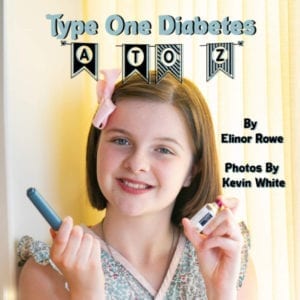
11 Mar How to Advocate for T1D Vaccination Prioritization
In the fight against COVID, we’ve come so far and learned a great deal, but we’re still in a battle (armed now with a greater understanding of the insidious virus and vaccines to guard against it).
Currently, COVID vaccines are in trials for adolescents (ages 12-16). As a parent of a child with type one diabetes (T1D), I’ve felt worry as a constant hum or steady presence since the novel virus abruptly uprooted daily life. People with diabetes are more likely to have severe symptoms and complications from COVID-19 (or any viral infection). We continue to wash hands, mask faithfully, practice social distancing, avoid crowds, and work and learn remotely (so much Zooming).
As we wait for news of the vaccines’ clinical trials in a younger population, we can advocate for vaccination prioritization for adults with T1D. We should not conflate or confuse our wait with inaction, and we should protect the vulnerable. Our advocacy is a powerful message to our community and a profound example to our family, especially our children.
While many communities are relying on Centers for Disease Control (CDC) guidelines, others are revising them. The vaccine prioritization landscape is fluid. The Juvenile Diabetes Research Foundation (JDRF) urges us to stay current on what’s happening. You can visit your respective state department of health website.
According to JDRF’s advocacy page, some states currently include those with T1D as eligible alongside type two diabetes (T2D) and other high risk diseases: Alabama, Alaska, Colorado, Illinois, Maryland, Minnesota, Montana, New York, New Mexico, North Carolina, Ohio, Rhode Island, South Carolina, Tennessee, Utah, Vermont, Virginia, and West Virginia. Again, this is constantly changing (due in no so small measure to advocacy efforts). It is worth noting that Georgia prioritizes parents of children with “diabetes” generally, but it does not yet prioritize individuals 16+ with T1D.
As you consider advocating for COVID-19 vaccine prioritization for people with T1D, review JDRF’s easy-to-use toolkit, which covers messaging/content and provides additional guidance. It is a simple, well organized, effective approach that puts resources at your fingertips. Don’t discount your personal experience, expertise, and community connections. Your voice brings a lot to conversations (and decisions!) about vaccination prioritization.
Using JDRF’s blueprint you can get started with four easy steps:
- Look Up Vaccine Plans in Your State. Vaccine plans are rapidly evolving, so start by checking the current T1D status in your state through:
- Prepare Your Message. As you advocate why people with T1D should be prioritized for vaccines alongside those with T2D, use JDRF resources to gather key facts and to answer frequently asked questions:
- template/sample letter
- spreadsheet on prevalence of T1D by state
- Identify Key Vaccine Policy Influencers in Your Community. This could include public health agency leaders, elected officials, hospital CEOs, and (potentially) your very own medical/endocrinology team.
- Share Your Message. Try a two-pronged approach: Grassroots (reaching out to the general public) and Grasstops (enlisting the help of individuals who have personal connections with the decision makers you are trying to reach; see #3).
Ways to share your message:
- Engage on Social Media, using the hashtag #prioritizeT1D. Regularly comment on the social media accounts of key influencers and post from your own platforms. Tag key influencers, repost messages from credible sources, encourage your friends and family to post, and use/share the hashtag unifying campaign efforts.
- Submit Letters to the Editor. Most local newspapers post submission guidelines (number of words, deadlines, etc.) on their websites.
- Submit Comment Letters. Some agencies are offering opportunities to provide written comments about COVID vaccine plans and policies. You can also send letters directly to your governor and state department of health.
Thank you for sharing your story and using your voice to help our T1D community, promote vaccine prioritization for the most vulnerable, and—ultimately—end a pandemic that has shattered so many lives and shaped us all.



